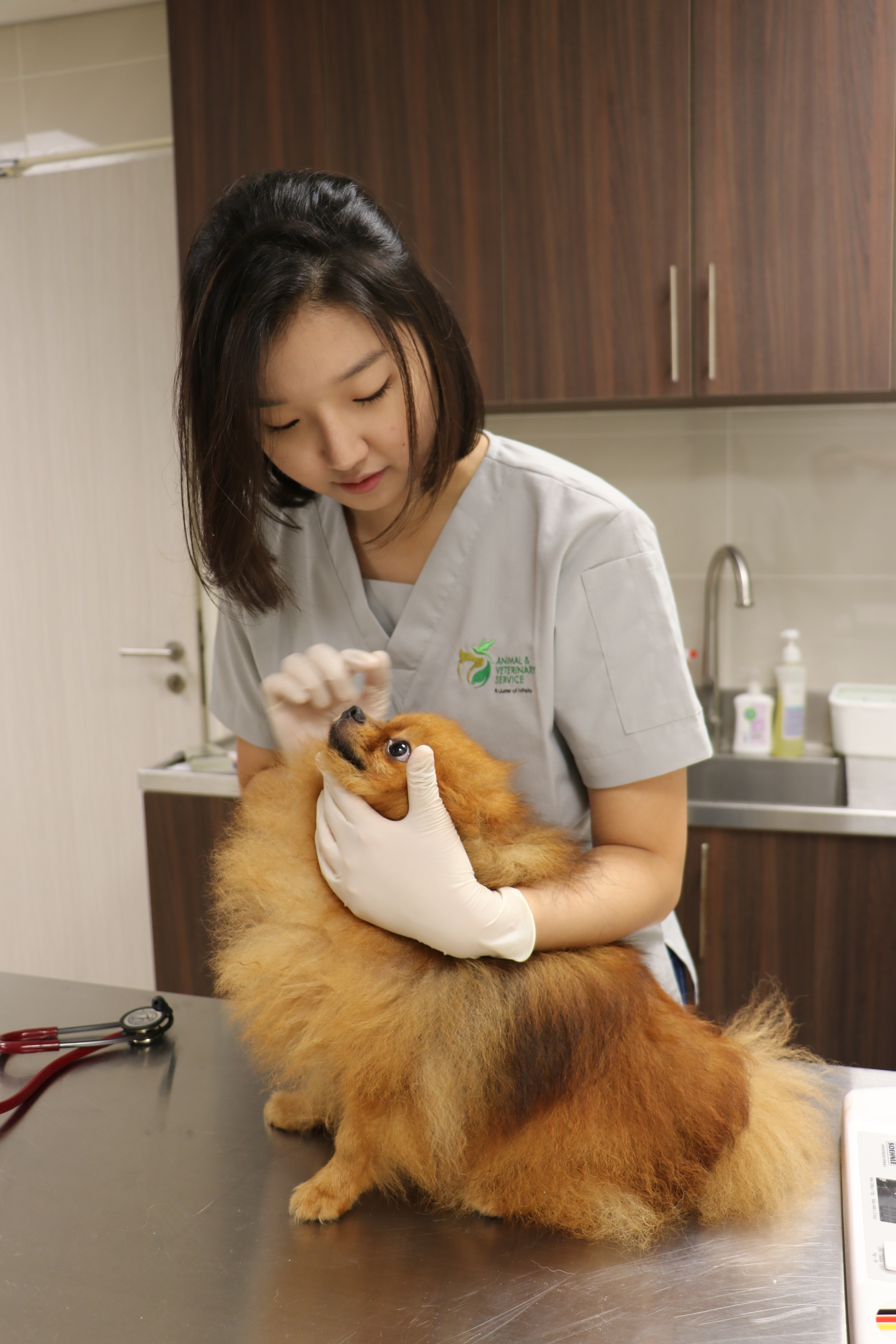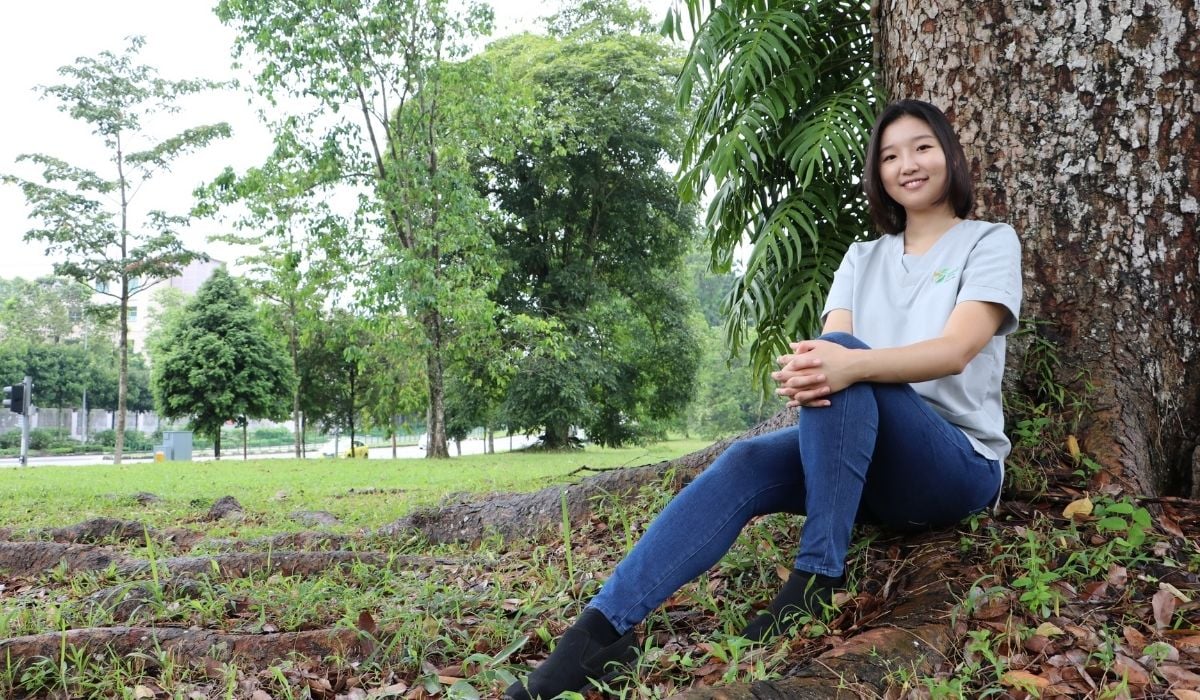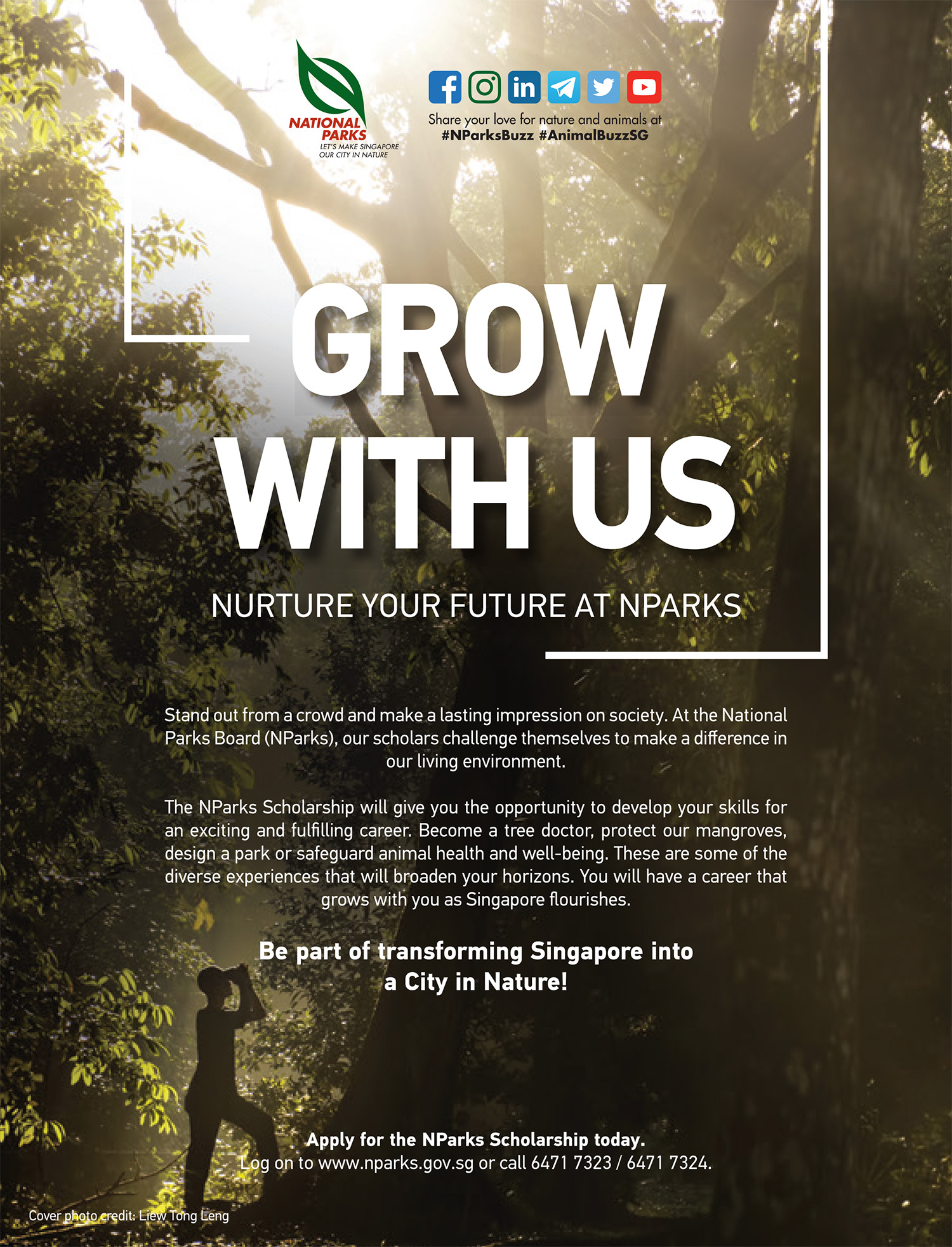Lee Heejun is a Veterinarian in the Industry & Biosecurity Management division. She is an NParks Overseas Undergraduate Scholar, and she holds a Bachelor of Veterinary Medicine (RVC) from Royal Veterinary College, London.
It might not be immediately apparent that NParks is the government agency ultimately responsible for the quarantine of dogs and cats that enter Singapore. It’s one of the many diverse career paths at NParks, which can range from arboriculture to managing coastal and marine biodiversity. And it is here that Lee Heejun found her calling as a Veterinarian in Industry & Biosecurity Management.
What led you to a Veterinary career at NParks?
My family used to keep fish, hamsters and chicks as pets, and I was completely baffled when they passed away. I could not understand why and I wanted to find out what more I could have done for them. This sparked my interest in becoming a veterinarian. I attended NUS High School and took naturally to biology and medicine, so Veterinary medicine seemed like an obvious progression for me.
At that time, I was looking at opportunities with the Agri-Food & Veterinary Authority (AVA) and I came across an article in BrightSparks magazine describing the multifaceted roles of a veterinarian in the public sector.
The idea of having a tangible, positive impact on both animals and humans sounded very exciting and fulfilling to me. This led me to pursue a scholarship with AVA. Halfway through my studies, Animal & Veterinary Service (AVS) was formed under NParks and took over the role of safeguarding the health and welfare of animals in Singapore.

Lee Heejun
What sort of support did NParks provide for your studies?
NParks continually kept in touch with me throughout. Being alone overseas has its challenges, and NParks made me feel valued and genuinely cared for. At the peak of the COVID-19 pandemic, the organisation was extremely concerned for the safety of all its overseas scholars and facilitated our return to Singapore. Many of my planned internships had to be cancelled but NParks offered an internship programme with its Industry & Biosecurity Management team.
Tell us more about your role and responsibilities at NParks and how did you apply what you have learnt to your current work?
My veterinary knowledge acts as a vital foundation for the wide array of work that I do with NParks. My main role at the Animal Quarantine Centre is to care for and monitor the health and well-being of imported animals undergoing post-arrival quarantine. I also help with inspecting animals and animal-related products that are imported into Singapore or are being exported overseas. The diverse range of species such as ornamental fish, salamanders, birds, horses, lab animals and various zoo animals also keeps the job intriguing, as I never know what kind of animal I will be inspecting next!
As I have to interact regularly with pet owners visiting their pets at the quarantine centre, the soft skills that I developed during my clinical placements –good communication skills and the ability to assuage owners’ concerns about their pets – have come in handy.
I also carry out inspections for licensing of animal-related businesses such as vet clinics, laboratories, fish farms and equine establishments. This allows us to communicate and collaborate with such businesses to enhance their standards of animal care and biosecurity.
Lastly, I am a member of the NParks veterinary team that responds to any new outbreaks of emerging diseases in Singapore by carrying out disease investigations and implementing control measures to prevent them from spreading.
How is being a Veterinarian at NParks different from the usual “vet work” at an animal clinic, for example?
Our routine work entails a varied blend of policymaking and regulatory actions, implementing biosecurity and biosurveillance measures, research, and community education and engagement.
While the “usual” vet work of examining individual animals for signs of disease or welfare concerns remains part and parcel of our daily work, we have a wider audience that includes animal owners, breeders, boarders, farms, vet clinics, labs and any companies handling animal and animal-related products. We also have a team of vets who specialise in treating and caring for wildlife and feral dogs and cats.
What is your most significant career achievement to date?
I was part of the team involved in relocating our quarantine facility and opening NParks’ new Animal Quarantine Centre, which incorporates high-tech initiatives to make the quarantine process more seamless. My focus was on optimising the new facility for these operations. I am proud to be heavily involved in some of these initiatives, including safe distancing management and pet monitoring systems in the centre with sensors/CCTVs and home quarantine technology involving smart collars.
What is the work culture at NParks like?
Collegiate and collaborative – my colleagues rise to the challenges and help each other when needed. Working at NParks necessitates that one be nimble as there are many opportunities to be involved in a wide variety of roles and projects. The officers at NParks are also highly passionate about their work, and there is a culture of positivity and giving constructive contributions. Staff constantly work on and improve areas and processes that could be done better and more efficiently.
What possibilities are there for people at NParks?
Officers such as inspectors, veterinarians and scientists who join NParks will be exposed to a wide array of situations requiring their expertise. NParks provides opportunities for well-rounded professional development, as staff can be involved in other areas associated with the public sector as well, such as policymaking and community engagement and outreach. There is also the possibility to be rotated to different divisions within NParks or to work on joint projects with other government agencies.
How would you convince someone to join NParks?
NParks is doing important work toward shaping Singapore into a City in Nature. AVS, under NParks, plays a key role in the vision to become a City in Nature by safeguarding animal and public health as we strive toward co-existence. The work is intellectually stimulating, meaningful and incredibly fulfilling, and two things are for certain: you will not be bored here, and you will be in a position where you can positively impact the flora, fauna and people of Singapore.
In your opinion, what qualities are needed to excel in NParks?
You need to think on your feet and have the desire to continually develop yourself professionally, for example by staying up to date on new research or developments. It also helps to be a strong team player; to be passionate; have good communication skills and have the flexibility to adapt to multiple roles.



